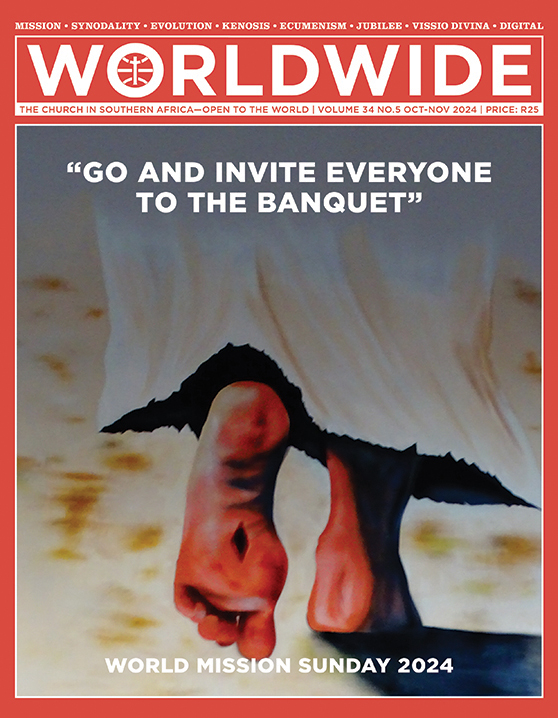
“GO AND INVITE EVERYONE TO THE BANQUET”
The image represents the feet of the Risen Jesus, in motion, showing the wounds of his Passion, yet ready to reach out and invite all to the banquet of his mercy. Likewise, Jesus invites to us to his mission in co-responsibility to bear witness to the power of his resurrection and to bring Jesus’ message of peace and fraternity to the whole world.
SPECIAL REPORT • ECUMENISM
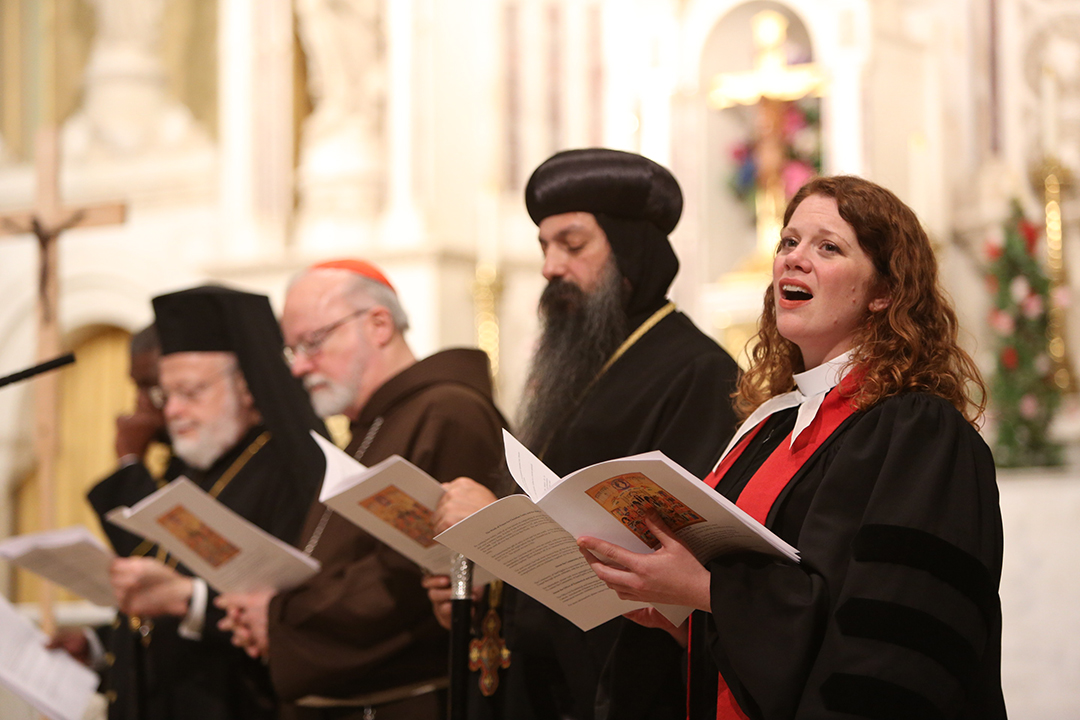
WITNESSING FAITH TOGETHER
The contemporary world is witnessing a strong growth in conversions to the Christian faith, particularly in Africa, where Evangelical and Pentecostal Protestantism is expanding.
BY SR MARIE-HÉLÈNE ROBERT, OLA | FACULTY OF THEOLOGY, LYON, FRANCE
THE ADVANCE of certain forms of Protestant Christianity may raise alarms in some, producing discouragement or increased inflexibility. On the other hand, it may stimulate a path of encounter, emulation, and partnership, a bulwark against proselytism (Robert, 2022; WCC, 1997). The plurality of religious offers invites missionaries to discern which elements can be opportunities to witness together the joy of the Gospel. Is it desirable and possible for different Christian communities to take this approach together? If so, why, to what extent, and how can ecumenism be a path to unity?
Mission and Unity in God’s Plan
“We are transformed personally and collectively and become agents of God’s transforming love in a broken world. We hear this call, which unites us in our hopes and in our prayers” (WCC, 2018). Christ’s disciples proclaim and receive a single baptism (Ep 4:5), which confers on them the mission of proclaiming the same Gospel, the joy of salvation, by sacrificing their lives in service of the most vulnerable.
Ecumenism is a common search for the unity willed by Christ “so that the world may believe” (Jn 17:21). Mission and unity of disciples are linked in Scripture (Jn 13:35; 17:17-23) because God wants to bring all his children together. “Ecumenism is a contribution to the unity of the human family” (Evangelii Gaudium (EG), §245). The ecumenical dimension is the sign of a mission that gathers and unifies in a pluralistic context, as it is carried out in the common recognition of God’s first and last action (Jn 5:17). Unity is the sign of the authenticity and fruitfulness of mission (EG §244). Indeed: “[t]he Lord’s spiritual testament tells us that unity among His followers is not only proof that we are His but also proof that He is sent by the Father. It is the test of the credibility of Christians and of Christ Himself. […] Yes, the destiny of evangelization is certainly bound up with the witness of unity given by the Church” (Evangelii nuntiandi (EN), §77).
It is not only a question of endorsing the coexistence of missiological lines but of seeking together the conditions of mission in unity and truth. In what way?
Mission and Unity
When Gospel proclamation, silent presence, diakonia, interreligious dialogue, and Church planting are opposed to, rather than complementing, each other, these divergences call for a fundamental and contextual reflection on mission and unity—even within the same church.
The evangelical Christians implement diverse missiological models due to a flexible ecclesiology: the Church is constituted by attraction or by sending, by means of informal encounters and networks or within a recognizable framework, by being inserted into the world, by being centered on individual salvation, or by spreading God’s blessing widely. These various models encourage the emergence of different forms of church— in movement, contextualized, in discernment between the transcultural essentials proclaimed by the Gospel, which can move us towards a prophetic call to a counter-cultural model and to the vitality generated by interculturality. This reflection can be carried out jointly between evangelical Christians and Catholics, who can renew their ecclesiological models without calling into question their specific foundation.
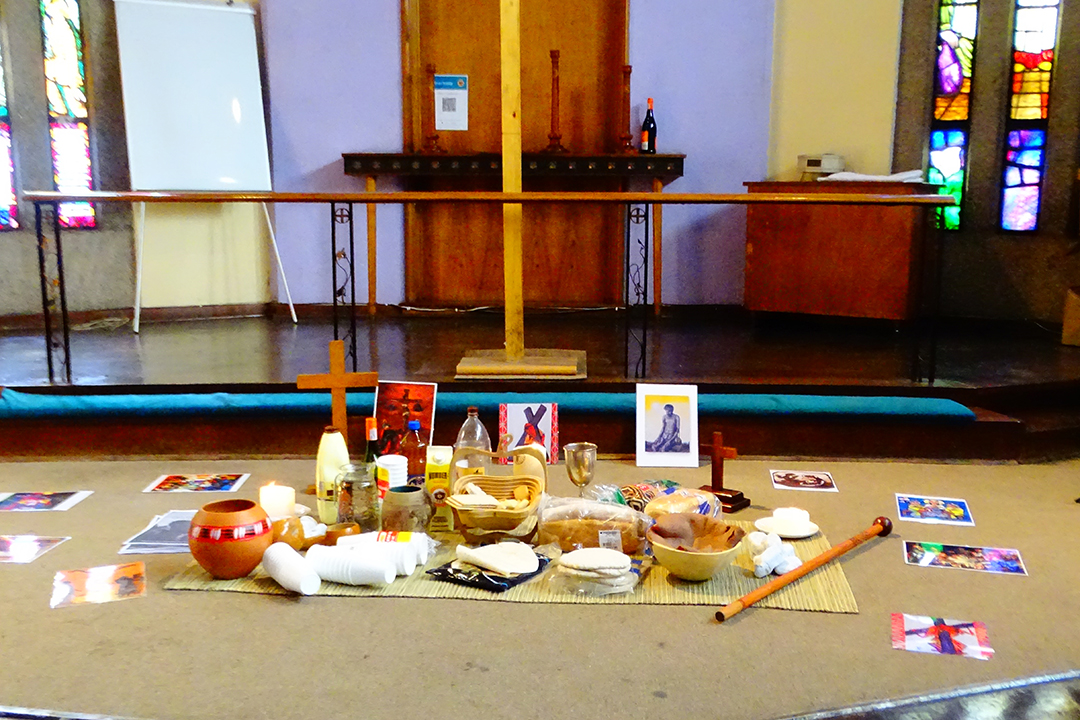
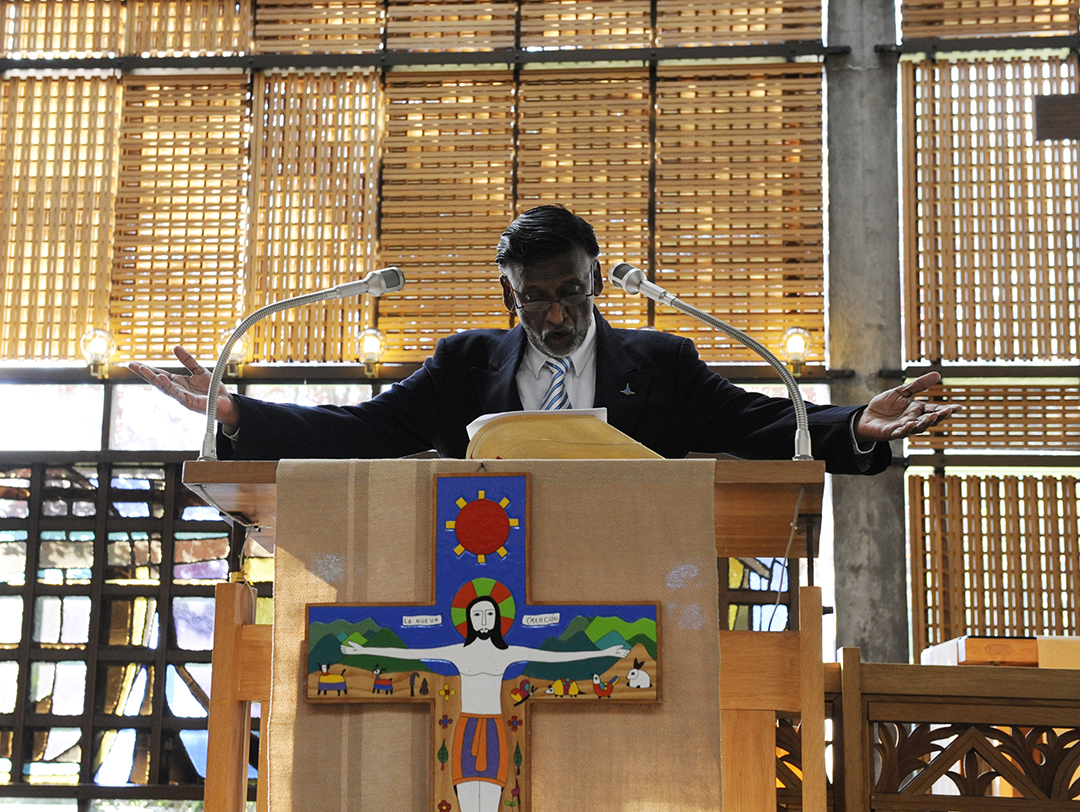
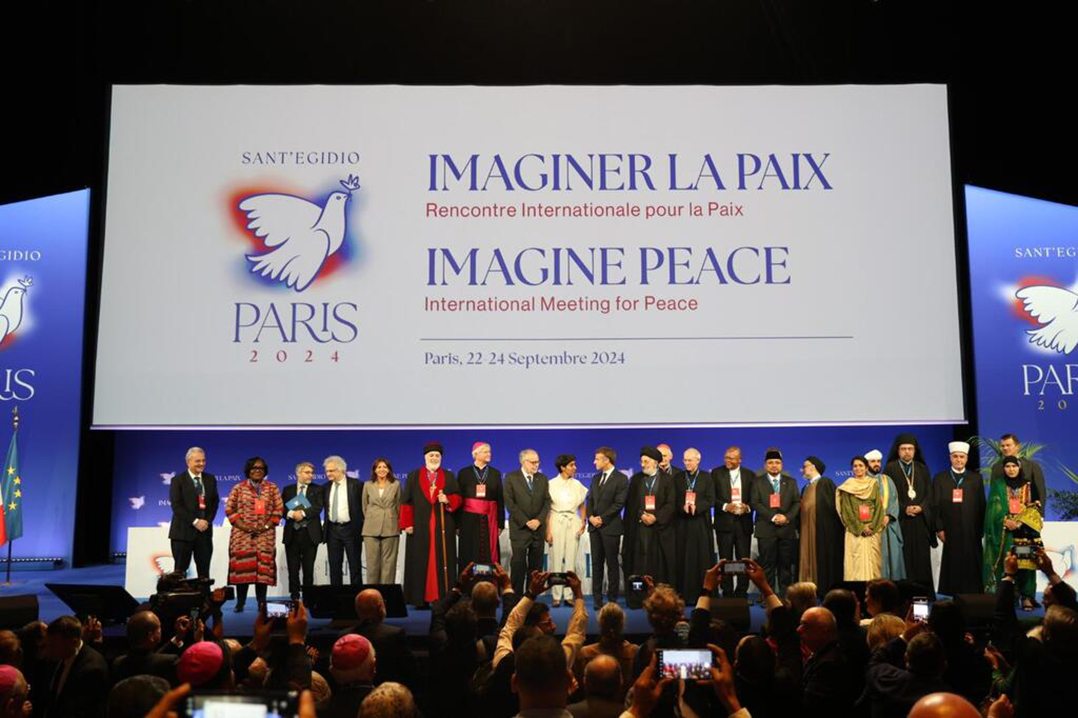
According to Pope Francis:
“If we concentrate on the convictions we share, and if we keep in mind the principle of the hierarchy of truths, we will be able to progress decidedly towards common expressions of proclamation, service, and witness. […] How many important things unite us! If we really believe in the abundantly free working of the Holy Spirit, we can learn so much from one another!” (EG §246).
The Instrumentum laboris (IL) for the second phase of the Synod on Synodality reveals a significant awareness of the reconfiguration of the places where faith is proclaimed: the specificity and multiplicity of contexts, growing urbanization, “increased human mobility within a globalized world” (§84), and the influence of digital culture upon redefining spaces and types of relationships. We could add the pluralism of spiritual and religious offerings in the same space.
A “synodal reform of ecclesial realities, called to be roads on which to journey together” (§86) is necessary, with a focus on flexibility and two points of vigilance: unity (between ecclesial realities, with the Pope, between Christian Churches) and welcome (to avoid elitist groupings). To this end, the practice of exchanging gifts is proving fruitful. Synodality is implemented through networks of people, communities, bodies, and a set of processes that enable an effective exchange of gifts between the Churches and an evangelizing dialogue with the world. Walking together as baptized persons in the diversity of charisms, vocations, and ministries, as well as in the exchange of gifts between Churches, is an important sacramental sign for today’s world, which, on the one hand, experiences increasingly intense forms of interconnectedness, and on the other is immersed in a mercantile culture that marginalizes gratuitousness (IL §42).
New Trends of Ecumenical Mission in the Context of the Synod on Synodality
“As each has received a gift, use it to serve one another, as good stewards of God’s varied grace” (1 Pet 4:10). Peter’s call was taken up again in Lumen gentium §13 to describe the “catholic unity of the People of God,” concerning the relationship of the parts to the whole of the Church. The expressions “exchange of gifts” and “receptive ecumenism” were deployed in the context of ecumenical dialogues (Pope John-Paul II, 1995: 28, 57; Pope Francis, 2013: 246; Siboulet, 2020: 249-270). The IL for the Synod follows the same path.
The IL invites Catholics to consider several elements concerning an integral and common formation: a life of prayer; listening to the Word of God and to the reality of the world; listening to each other’s experiences; “the search for the widest possible consensus not by finding the lowest common denominator, but by overflow, aiming at what most ‘makes hearts burn’ (cf. Lk 24:32)”; formulating and returning this consensus to the participants, who may or may not validate it (IL §63).
These elements are highly relevant to an ecumenical approach: they can be lived in common in charitable action, spiritual life (charismatic groups and communities), theological reflection (dialogues, ethics committees, common translation of the Bible), the awakening, and proclamation of faith.
In the Ivory Coast, for example, where independent churches blossom every week, members of the same family may belong to different churches. Dialogue can break down, and faith can become a bone of contention, while other families experience the benefits of sharing what they have experienced.
Receptive ecumenism encourages us to receive and learn from each other, in gratitude and confidence. This leads to a conversion of self to otherness, to welcoming God’s work in the ways He wills. Church members can reflect together on their practices, and even conduct research projects on them. Fr Régis Akoda Aymar Kple, from Benin, for example, has recently defended his master’s degree in Lyon on “The charism of healing in Catholic-Pentecostal dialogue in Africa. Missiological issues.”
To develop a common ethic of evangelization at the local level, a few criteria can be considered (Robert, 2022:267-276):
- Recognize God’s primary work for mission and unity.
- Recognize our baptism as a unique missionary mandate.
- Consider the good transmitted rather than the transmitter (Lk 9:49-50).
- Verify that the suffering person is at the heart of our concerns.
- Be considerate of Christ’s disciples and their community.
- Discern the motivations behind a request for affiliation to your community.
- Deepen a hermeneutic of witness: content and mode are transmitted through each other, bringing credit or discredit.
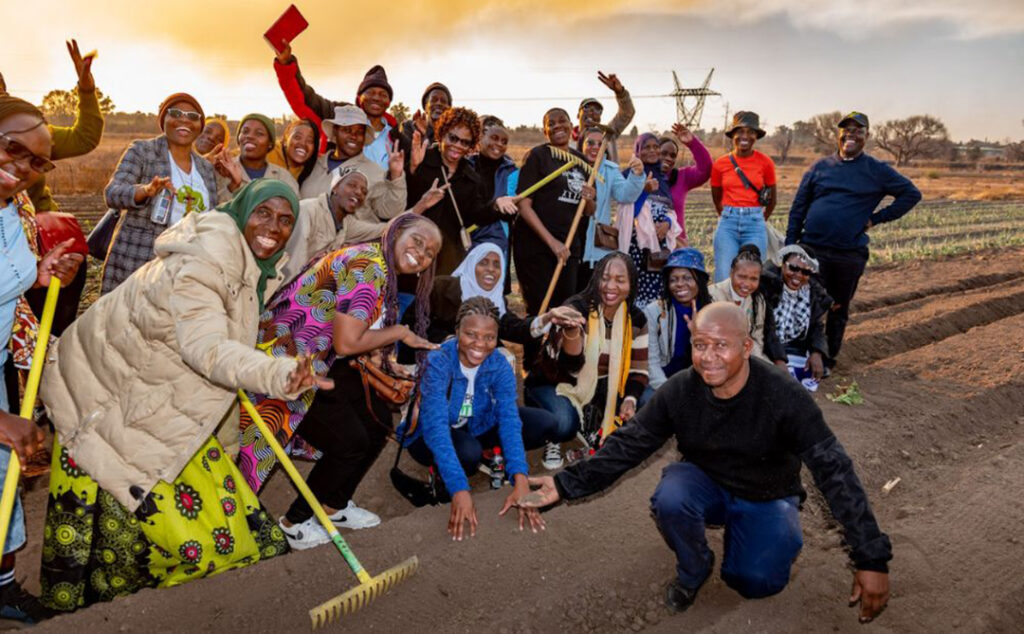
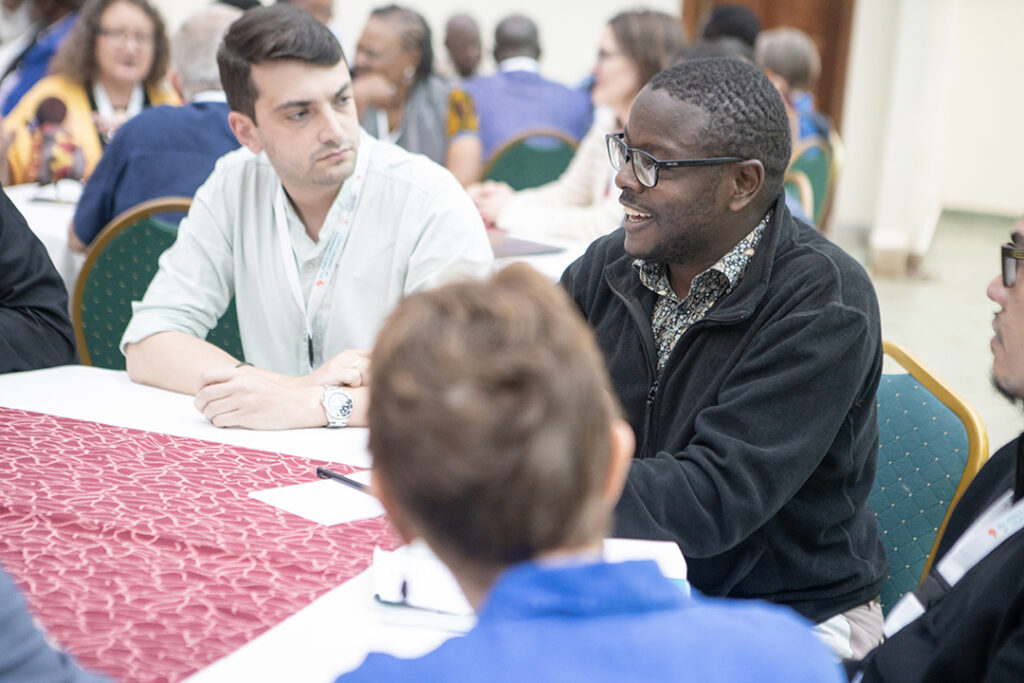
In conclusion, the 2025 Jubilee: Pilgrims of Hope, is an opportunity to renew our commitment to communion and unity in contexts of division linked to history, whether personal or collective. For wounded and troubled humanity, the witness of reconciliation that Christians are called to and can bear in the world is a great sign of hope.

